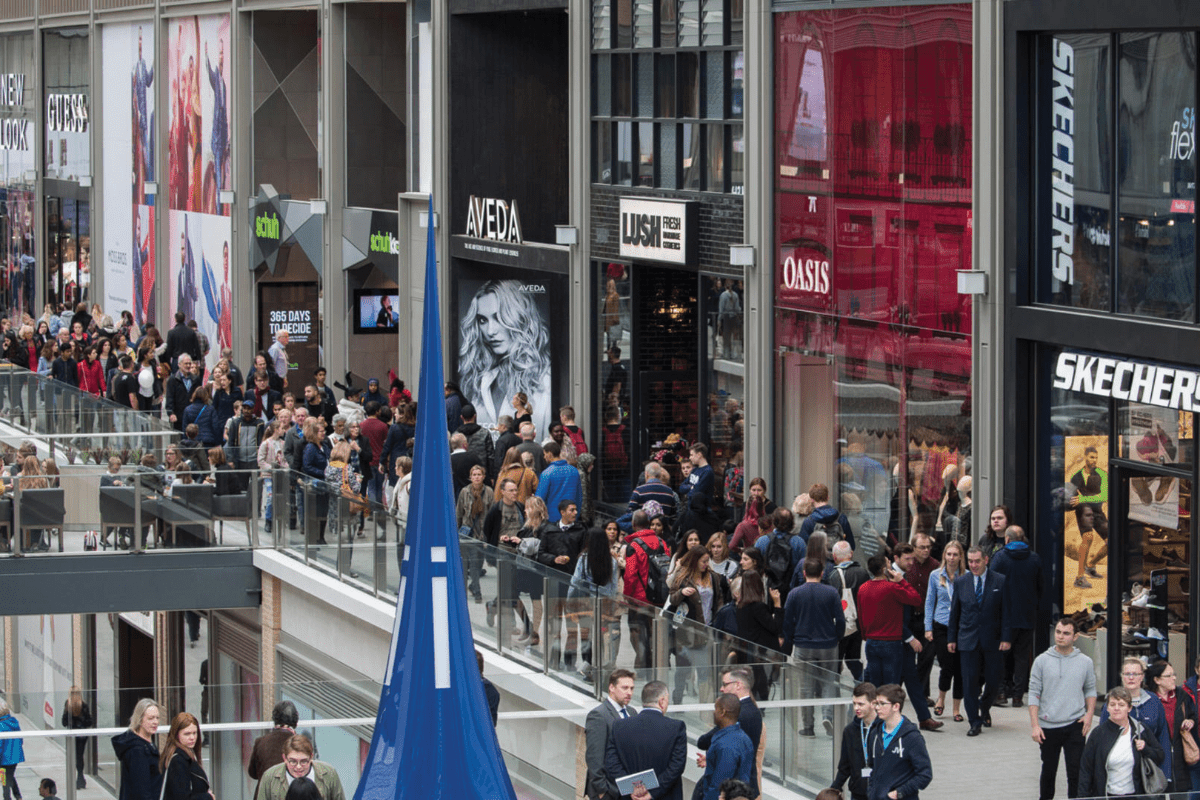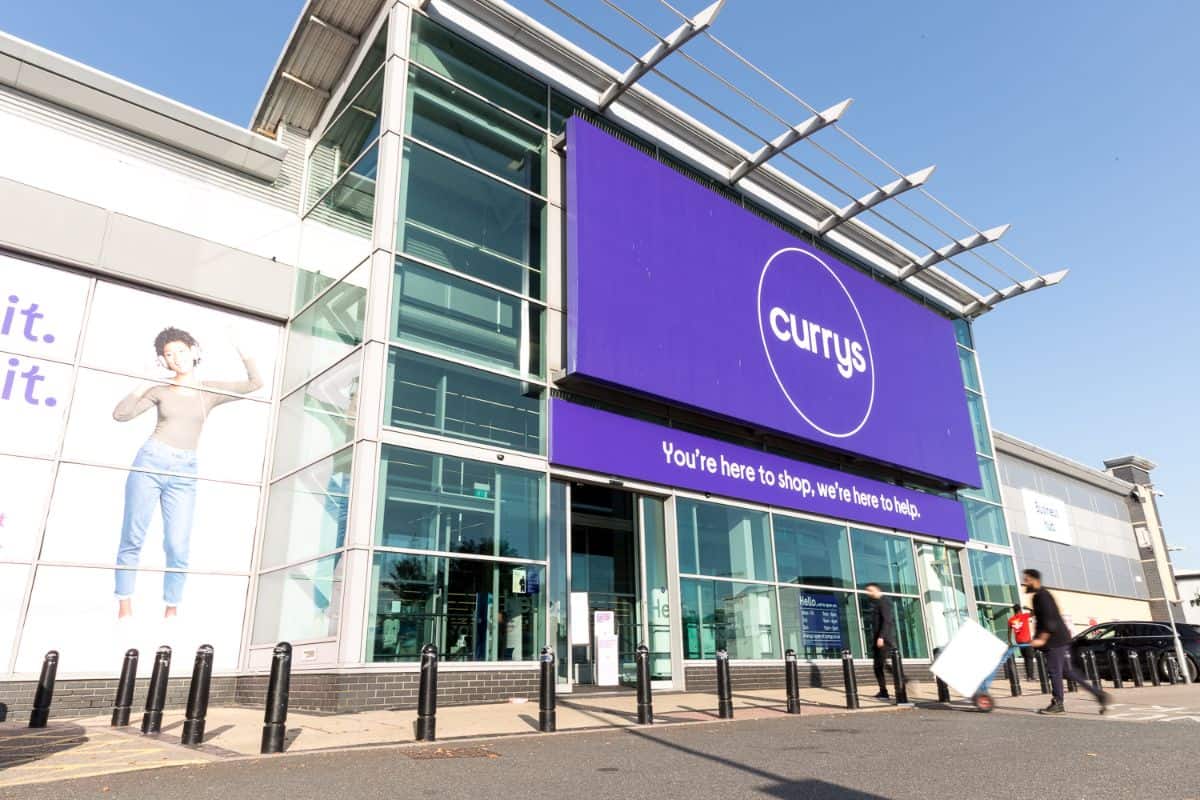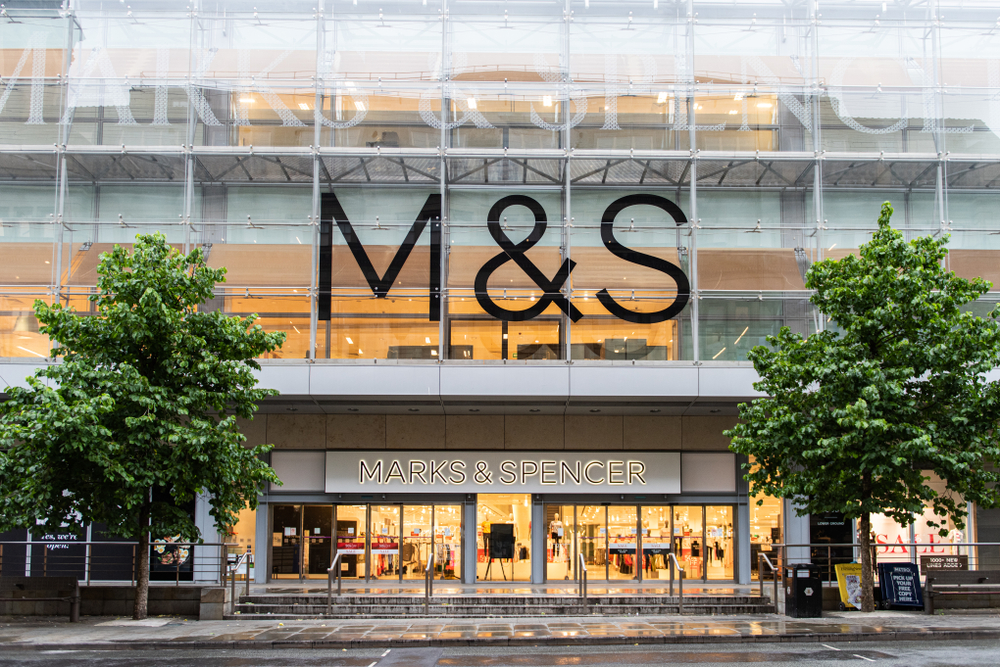Land Securities says it’s increasingly confident in the prospects of the prime retail destinations that it operates, following a “strong recovery” from the Covid-19 pandemic. However, it also says that about a quarter of UK retail space is surplus to requirements and that brands are likely to close low margin shops in secondary locations in an inflationary trading environment.
While the pandemic drove shopping online faster than before, the retail and commercial property developer says in its full-year results today that it believes that the outlook for its sites is good, “with a growing polarisation between our assets and those facing structural obsolescence”. It says major retail destinations now account for 16% of its portfolio, which is split between prime shopping centres and outlets, from Bluewater, Trinity Leeds and Westgate Oxford to Clarks Village, Street.
Land Securities continues to believe that about 25% of UK retail space is “excess retail space”, of which most is in secondary retail sites with high levels of vacancies. It says inflation is putting pressure on low-margin shops particular, and that is like to mean that brands rationalise their stores. At the same time it says that prime destinations are getting stronger, with occupancy in its own portfolio rising to 93.2% over the year. “For many leading brands, online and physical channels are now viewed as firmly inter-connected, so we have seen existing brands upsize, new brands opening stores as they move from nearby locations to benefit from higher footfall, and digital native brands opening physical stores to grow customer connectivity and experience,” it says in today’s full-year statement.
The update comes as Land Securities today reported pre-tax profits of £875m in the year to March 31 2022, turned around from a loss of £1.4bn last year. Net rental income grew by £105m to £510m during the year, with like for like income up b 4.1m. Land Securities’ combined portfolio was valued at £12bn at year-end, up from £10.8bn last time. This, says Land Securities, reflects both a strong recovery in the value of assets and profit from developments. It saw a £107m profit on investment property disposals including the sale of two retail parks for £53m and the sale of Harbour Exchange for £197m. Its major retail portfolio was valued at £1.9bn.
Land Securities chief executive Mark Allan says: “Landsec has delivered strong operational and financial results despite the turbulence within the UK economy. The actions we have taken, driven by our strategic focus on three distinct areas have resulted in record leasing in our London office portfolio, a return to growth in our major retail destinations and clear, substantive progress in growing our mixed-use urban neighbourhood portfolio. We continue to recycle capital out of mature assets, whilst our pipeline now offers the opportunity to invest £3bn in sustainable London offices and mixed-use development over the next five years at attractive returns.
“Landsec is in a strong position, financially and operationally, and we expect delivering on our strategy to drive material growth in income and, on average, a mid to high single digit annual return on equity over time.
“This position affords us many opportunities, not least the ability to lead change, which is why today we have raised the bar for ourselves and our industry by setting out ambitious targets to reduce embodied carbon through development as well as clear plans to enhance social mobility both in our industry and through the places where we invest. With the expertise we have within the business and the momentum built, I am confident that we are on the right path and will be able to navigate the wider macro uncertainties facing the economy today.”
Retail strategy
Land Securities has focused its retail team on growing brand relationships and improving the shopper experience over the last year, while spending less time on asset management – and says brand feedback has been positive. It says that during the pandemic it focused on supporting customers and prioritising occupancy. Now rent collection has normalised, with the March quarter now 96% received, in line with pre-pandemic levels.
During the year it signed – or is signing – £29m worth of rental deals and says rents are now returning to sustainable levels after five years of declines. It says that leases are now generally shorter, and more linked to turnover, but incentives – such as discounts – are also down. Retail sales in its portfolio are now 1% above 2019/20 on a like-for-like basis that strips out the effect of openings and closures. The property company expects to continue to focus on major retail destinations, and says these could grow to account for 25% of its portfolio as it moves capital out of sectors including retail parks and leisure.
The business is also focusing on mixed-use urban developments, which include retail alongside offices and homes. These now account for 7% of its portfolio and Land Securities says it has a growing pipeline of such projects.
Sustainability strategy
Land Securities says that it reduced embodied carbon in its development pipeline by 20.7% in a year that saw it, for example, using steel with a greater recycled content. It also reduced energy intensity by 17.5% on 2020, although this does in part reflect the lower use of space in the first half of the year.
It now plans to invest £135m in its portfolio by 2030 on its net zero transition investment plan, including installing air source heat pumps, increasing renewable capacity and improving its building management systems.









